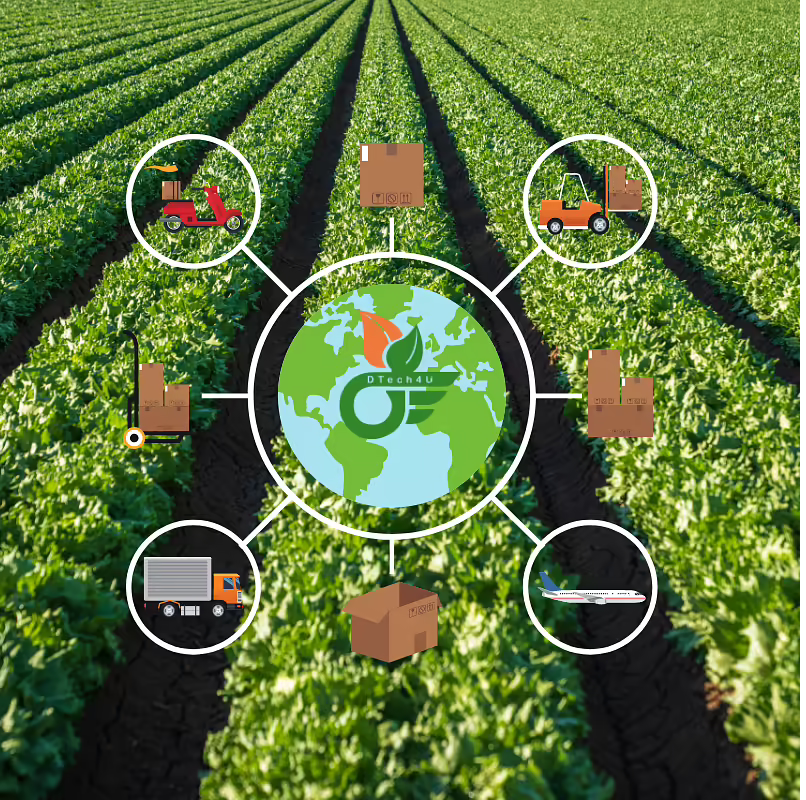In recent years, big data has transformed industries worldwide, and agriculture is no exception. The agricultural industry is heavily reliant on supply chain data management to optimize operations, reduce costs, and increase profitability. With the emergence of big data, the agricultural supply chain management is undergoing a paradigm shift.
In this article, we will explore the future of big data in agriculture supply chain management, its benefits, and its potential applications.
Understanding Big Data in Agriculture
Big data refers to the large volumes of data generated in the agricultural industry. This data can include information on soil, climate, pests, disease outbreaks, production rates, transportation, and logistics. These data points provide valuable insights that can be leveraged to improve the supply chain management of the agricultural industry.
The Benefits of Big Data in Agriculture Supply Chain Management
The use of big data in agriculture supply chain management has the potential to revolutionize the industry. Some of the benefits include:
1. Increased Efficiency
Big data provides insights into production rates, demand trends, and transportation logistics. This data can help optimize the supply chain, reducing waste, and improving efficiency.
2. Improved Traceability
By tracking the entire supply chain, big data can improve the traceability of products. This can help identify potential issues early and prevent the spread of disease or contamination.
3. Better Decision Making
Big data provides insights into trends, production rates, and supply chain logistics. This data can help agricultural businesses make better-informed decisions, leading to increased profitability.
Applications of Big Data in Agriculture Supply Chain Management
The potential applications of big data in agriculture supply chain management are vast. Some of the areas that can be improved using big data include:
1. Crop Management
Big data can be used to optimize crop yields by providing insights into soil quality, climate, and other factors that impact crop growth.
2. Transportation and Logistics
Big data can optimize transportation and logistics by identifying the most efficient routes and delivery schedules.
3. Quality Control
Big data can improve the quality of agricultural products by identifying potential issues early and preventing contamination.
Challenges in Implementing Big Data in Agriculture
While big data has enormous potential in agriculture supply chain management, there are also significant challenges to overcome. These include:
1. Data Integration
Agricultural supply chain data is often siloed, making it difficult to integrate and analyze.
2. Cost
Implementing big data solutions can be expensive, making it challenging for small-scale farmers to take advantage of these technologies.
3. Technical Expertise
Big data solutions require specialized technical expertise, which may be difficult for small-scale farmers to access.
Conclusion
Big data has enormous potential in agriculture supply chain management. It provides insights into production rates, transportation, and logistics, helping agricultural businesses make better-informed decisions. Despite the challenges of implementing big data solutions, the benefits of these technologies are clear. As the agricultural industry continues to evolve, big data will become an increasingly important tool in supply chain management.
FAQs
Q1. What is big data in agriculture supply chain management?
Big data refers to the large volumes of data generated in the agricultural industry, including information on soil, climate, pests, disease outbreaks, production rates, transportation, and logistics.
Q2. How can big data improve the efficiency of the agricultural supply chain?
By providing insights into production rates, demand trends, and transportation logistics, big data can help optimize the supply chain, reducing waste, and improving efficiency.
Q3. What are some of the key challenges in implementing data management in the agriculture supply chain?
One of the key challenges is the lack of standardization and interoperability of data across different systems and platforms. Another challenge is the need for greater collaboration and trust among different stakeholders in the supply chain, such as farmers, distributors, retailers, and consumers.
Q4. How can data management help to address issues of food safety and traceability?
By providing a transparent and traceable record of the entire supply chain, data management can help to identify and address issues of food safety and traceability. This can help to prevent outbreaks of foodborne illnesses, reduce product recalls, and improve overall consumer confidence in the food supply chain.
Q5. What are some of the ethical considerations related to data management in the agriculture supply chain?
One ethical consideration is the privacy and security of personal data collected from farmers and other stakeholders. Another consideration is the potential for data to be used in ways that may harm small-scale farmers and producers, such as by giving larger companies an unfair advantage in the market. It is important to ensure that data management systems are designed with these ethical considerations in mind.


